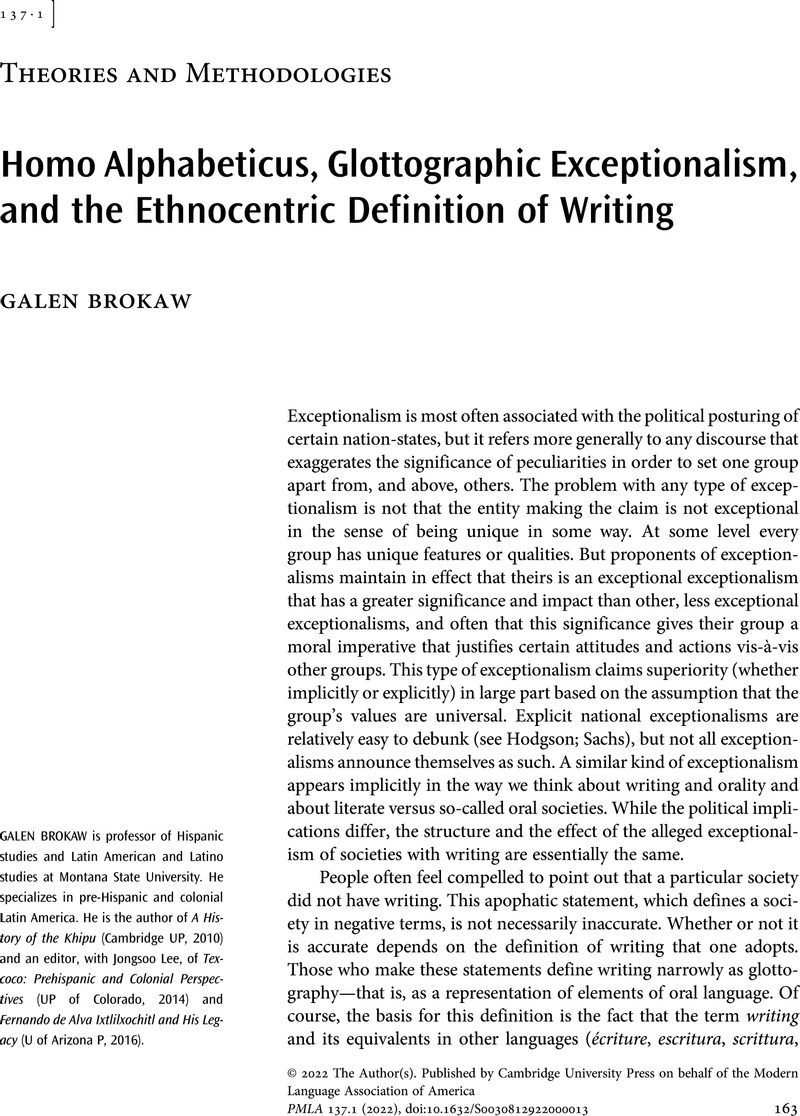Crossref Citations
This article has been cited by the following publications. This list is generated based on data provided by Crossref.
Mikulska, Katarzyna
and
Brokaw, Galen
2022.
Homo alphabeticus, la definición de la escritura y las escrituras mesoamericanas.
Revista Española de Antropología Americana,
Vol. 52,
Issue. 2,
p.
201.


